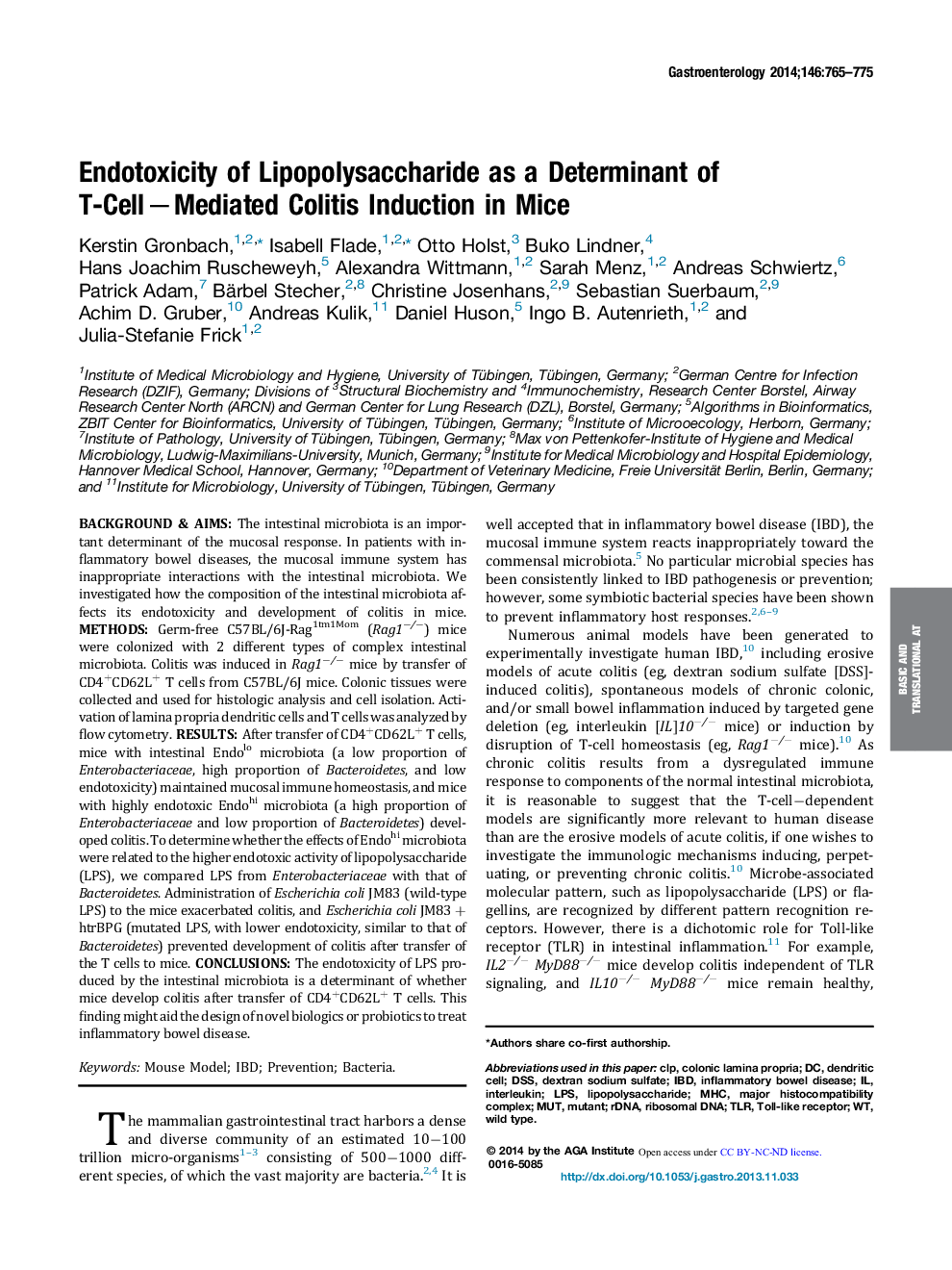| کد مقاله | کد نشریه | سال انتشار | مقاله انگلیسی | نسخه تمام متن |
|---|---|---|---|---|
| 6095499 | 1209829 | 2014 | 11 صفحه PDF | دانلود رایگان |

Background & AimsThe intestinal microbiota is an important determinant of the mucosal response. In patients with inflammatory bowel diseases, the mucosal immune system has inappropriate interactions with the intestinal microbiota. We investigated how the composition of the intestinal microbiota affects its endotoxicity and development of colitis in mice.MethodsGerm-free C57BL/6J-Rag1tm1Mom (Rag1â/â) mice were colonized with 2 different types of complex intestinal microbiota. Colitis was induced in Rag1â/â mice by transfer of CD4+CD62L+ T cells from C57BL/6J mice. Colonic tissues were collected and used for histologic analysis and cell isolation. Activation of lamina propria dendritic cells and T cells was analyzed by flow cytometry.ResultsAfter transfer of CD4+CD62L+ T cells, mice with intestinal Endolo microbiota (a low proportion of Enterobacteriaceae, high proportion of Bacteroidetes, and low endotoxicity) maintained mucosal immune homeostasis, and mice with highly endotoxic Endohi microbiota (a high proportion of Enterobacteriaceae and low proportion of Bacteroidetes) developed colitis. To determine whether the effects of Endohi microbiota were related to the higher endotoxic activity of lipopolysaccharide (LPS), we compared LPS from Enterobacteriaceae with that of Bacteroidetes. Administration of Escherichia coli JM83 (wild-type LPS) to the mice exacerbated colitis, and Escherichia coli JM83Â + htrBPG (mutated LPS, with lower endotoxicity, similar to that of Bacteroidetes) prevented development of colitis after transfer of the T cells to mice.ConclusionsThe endotoxicity of LPS produced by the intestinal microbiota is a determinant of whether mice develop colitis after transfer of CD4+CD62L+ T cells. This finding might aid the design of novel biologics or probiotics to treat inflammatory bowel disease.
Journal: Gastroenterology - Volume 146, Issue 3, March 2014, Pages 765-775